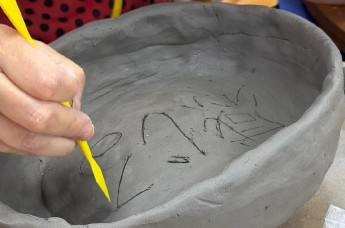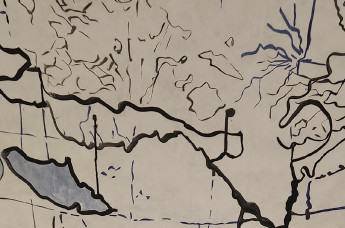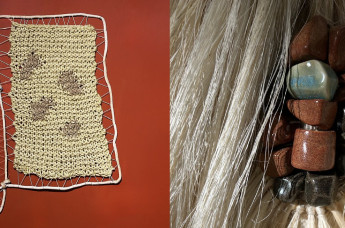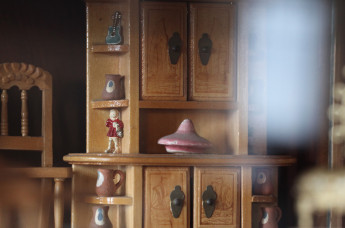From Saturday, October 30, The Eternal Return of the New World, with works by Carlos Colín, Gabriel Garcilazo, La Chola Poblete and El Bondi Colectivo along with pieces from the Museum's collection; and Silver rights, by Elena Mazzi in dialogue with Eduardo Molinari and Mauro Millán, can be visited.
These exhibitions are part of the curatorial axis Fluid Constellations and delve into aspects such as the marks of colonization in the present world, the struggles of native communities and their contributions in the reflections on a more sustainable world.
UNTREF’s Orchestra of Indigenous Instruments and New Technologies (OIANT) will be present at the opening’s previous stage.
On Saturday, October 30 at 4:30 p.m., BIENALSUR inaugurates, at Km 70 of its cartography -the Complejo Museográfico Provincial Enrique Udaondo, in the province of Buenos Aires-, the exhibition The Eternal Return of the New World, made up of productions by Carlos Colín (MEX), Gabriel Garcilazo (MEX), La Chola Poblete (ARG) and El Bondi Colectivo together with works from the Museum's collection belonging to different indigenous cultures, curated by Marina Aguerre, Leandro Martínez Depietri and Florencia Qualina, from the BIENALSUR team. The project reviews the processes of conquest and colonization of the American territory and the forms that they currently adopt.
Which mechanisms of domination survive throughout our history? How to look at this legacy and our heritage to understand our present better? These are some of the questions that resonate in this new curatorial story by BIENALSUR.
At the same time, Silver rights, by Italian artist Elena Mazzi, is presented in dialogue with Argentine artist Eduardo Molinari and the Mapuche spiritual leader and silversmith Mauro Millán. Curated by the Italian Emanuele Guidi and with the support of the Italian Institute of Culture and the Italian Council, this project consists of a large installation with multiple elements that delves into the ancestral relationship of the Mapuche community with their territories in South America, today denied by neocolonial forms of extractivist capitalism.
Both exhibitions count with the support of the Subsecretariat of Cultural Policies of the Province of Buenos Aires of the Ministry of Production, Science and Technological Innovation of the Government of the Province of Buenos Aires. They may be visited until April 30 on Saturdays, Sundays and public holidays from 11 a.m. to 6 p.m. without reservation, and on Thursdays and Fridays from 9 a.m. to 3 p.m. with prior registration.




